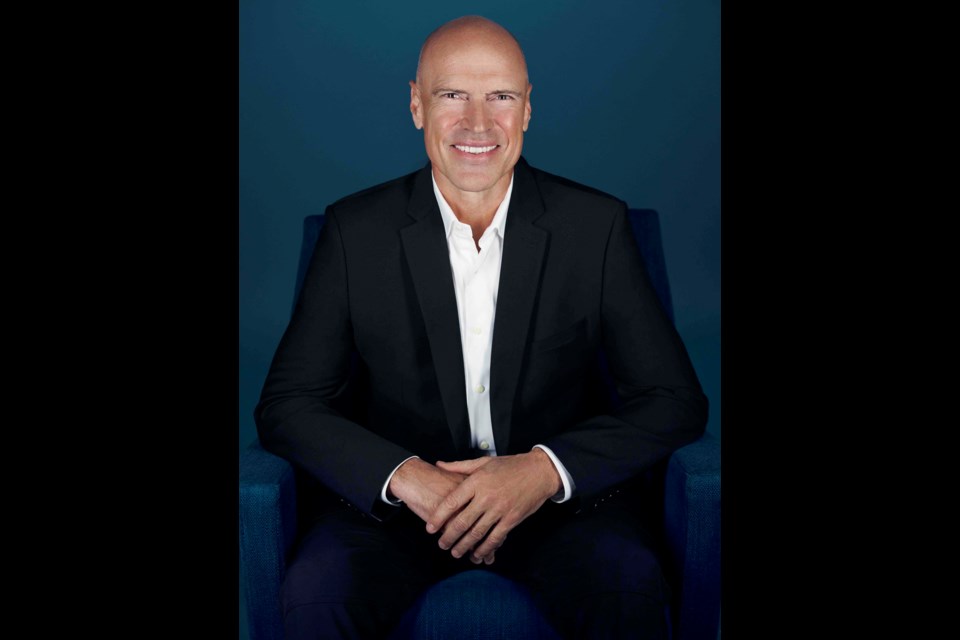DETAILS
No One Wins Alone
By Mark Messier, with Jimmy Roberts
368 pages
$39.99
Simon and Schuster
simonandschuster.com/books/No-One-Wins-Alone/Mark-Messier/9781982158569
FAST STATS
Messier is considered one of the greatest ice hockey players of all time.
He was known for his aggressive, strong play, earning him the nickname "The Moose."
He is second on the all-time career lists for playoff points — 295 — and third for regular season games played — 1,756 — and regular season points — 1,887.
He is a six-time Stanley Cup champion: five with the Edmonton Oilers and one with the New York Rangers, which ended a 54-year championship drought in 1994. This earned him his second nickname: "The Messiah."
He is the only player to captain two teams to Stanley Cup championships.
He twice won the Hart Memorial Trophy as the league's most valuable player. He also once won the Conn Smythe Trophy as the most valuable player during the playoffs.
He is a 15-time NHL All-Star.
He was inducted into the Hockey Hall of Fame in his first year of eligibility. That same year, Messier was named one of the "100 Greatest NHL Players" in history.
Courtesy of Wikipedia
Throughout his long hockey career, Mark Messier was known as a leader. The National Hockey League doesn’t just name awards after regular players, so the fact the league instituted the Mark Messier Leadership Award the year after his retirement should mean something.
Now, the player alternately known as "The Moose" and "The Messiah" has earned a new nickname: "The Messenger." Long retired, he has finally published No One Wins Alone, his book of memoirs co-written by sportscaster and friend Jimmy Roberts. As you’d expect, there’s lots of fine sports stories inside, but it also serves as a primer for developing those stellar leadership skills on, and off, the ice.
The question remains: why now?
“I guess enough time had passed since retirement to be able to reflect on my career and be able to talk about it without welling up with emotion,” he explained during a phone interview from his Connecticut home.
His friendship with Roberts over the years probably played a huge part, too. Messier said his friend gave him a copy of his first book, Breaking the Slump, which was geared toward golfers. The idea took hold that something similar, albeit geared for hockey players and fans, would also be a welcome addition to the world of sports journalism.
“We shared a passion for sport and psychology behind sport, and the importance of teamwork and the people around you,” he continued.
It’s true: the only person to captain two separate franchises to the Stanley Cup cares deeply about sport psychology. Roberts is a great storyteller, he noted, adding credit to publishing house Simon and Schuster for creating the right environment for him to open up. Messier said that the mustering of forces helped to fortify his resolve in tackling the writing of his life story. He revealed he must have spent thousands of hours working with Roberts going through three decades of his personal notes to dig deeper and tell the story well.
There were a lot of memories that came back, and a lot of lessons on teamwork and leadership.
Some of those memories naturally revolved around his formative years living and playing in St. Albert. That time was “instrumental” in his development, he said. It's where he spent much of his childhood, but it’s also where he had the "C" on his chest for the first time with the St. Albert Saints. He spoke of the Perron Street Arena — aka the Ducky Dome, though he calls it The Barn — and the many friendships and experiences he had while playing junior hockey here.
Now 60, he has spent his post-play years helping others develop themselves through the Mark Messier Leadership Camp; being a public advocate for preventative health care; and serving the community through various initiatives. He's still involved in the sport, coaching in Europe, the odd game here and there, not to mention the variety of media commentary positions he has held.
"It was hard to walk away not wishing that I had done more or seen more or played longer. I knew that it was time to retire, but that doesn't stop you from missing the game and missing the camaraderie that comes along with playing a game that you love," he said. "Of course, with the leadership award, I've stayed really close to the game and the players and what was going on in the league in order to be educated on what great things that the players are doing on and off the ice."
As a hockey player, he was known as a workhorse. That ethic came to help him tackle this effort, even with the help of a talented friend and co-writer.
“They said it was going to be a lot of work, and they were right. It was a lot of work, but it was very gratifying,” he laughed.
Despite the monumental task, he said there were still so many stories and other insights they just couldn't fit into this book. He didn't leave out the possibility of a follow-up somewhere down the line.




